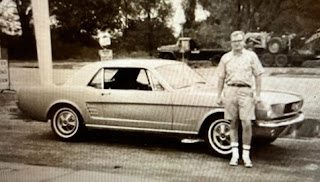Many traditional things are being challenged in America today, and one of those things is the value of higher education after the completion of high school. Part of that is the incredible expense of a college education today. Certain degrees, such as Medicine and the Law, among others, require an investment in further education, but recently more people are challenging the necessity of a college degree for other career paths, often suggesting that a 2-year Community College degree is adequate. Other critics point to the extravagant and unnecessary expense of things having no connection with education that colleges now provide to attract students, like climbing walls and waterparks, which are driving up tuition unnecessarily.
These critics suggest that trade schools and employers who offer assistance to employees to attend college part time are better choices. In my own community, I know of examples of businesses started by young men fresh out of high school that have become highly successful. Of course, virtual classes are also attracting students.
When I first read the heading of an article, "College Is A Scam," I was startled; however, I decided to investigate. The debt many students leave college owing is in many, perhaps most, cases ominous, but since that varies with scholarships, grants, awards, and parental assistance, I have chosen not to put a number on the particular amount other than to say for many graduates paying off their student loans will take years. From 1989 to 2016, according to one survey, the cost of college increased almost eight times faster that wages.
Here are some things to consider:
1. 35% of all jobs require at least a Bachelor's Degree. (Of course, that means that 65% do not.)
2. Graduates have higher salary rates and lower unemployment rates, $1,305 to $781 weekly salary rates on average, and 3.2% to 6.8% unemployment rates, or in another study 2% to 5%.
3. Jobs requiring a Bachelor's Degree are more likely to provide health insurance of some type; and interestingly, those with a Bachelor's are more likely to have better health habits, in particular, 20% of High School Graduates smoke, 12% of those with Associate Degrees, and only 5% of those with a Bachelor's Degree.
Those counseling students regarding the benefits of college offered several reasons, although true, that seemed to me something most young high school graduates could achieve on their own, outside of college: "A safe place to explore interests, test career paths, or take classes 'just for fun,' A place to "make connections," A way to acquire personal growth and practice responsibilities, and an opportunity to increase knowledge and expand world views. While those things could be pursued without being in college, it would require self discipline without a professor's or counselor's guidance, but to do well, college itself requires self discipline.
I thought an interesting way to close would be with the names of some well known people who stopped with a Community College Degree: Eileen Collins, NASA astronaut; Calvin Klein, fashion designer; and Tom Hanks, Oscar wining actor.
I do not agree with the title, "College Is A Scam," that first attracted my attention. However, I do understand why other options might be worth considering.
[As I noted at the top of this blog, at the time I drafted the blog, President Biden had not declared the aid to students struggling with collage debt. Certainly I was aware of that burdensome debt, and I knew several politicians had plans they were advocating to assist students with such debt. I certainly understand the objections from students who paid their obligations with no government help. I also understand those who may not have pursued their first career choice, finding instead an alternative career to avoid such debt. After all, those who chose the expense of college did so fully aware of the debt they could incur. College is very expensive, and universities have made it more so by competing with each other to make their school more enticing. I think most of us agree with the problem. It is the appropriate solution that remains in dispute. President Biden's plan seems more concerned with helping graduates escape the debt than with addressing the obviously cost of higher education. Without addressing that part of the problem, it does not seem to be an effective solution. I do not typically express my opinion in my blogs, but rather than avoid commenting in this case and deleting the blog, I felt an addendum was appropriate. I respect that readers of this blog may have a different perspective.]







.JPG)

